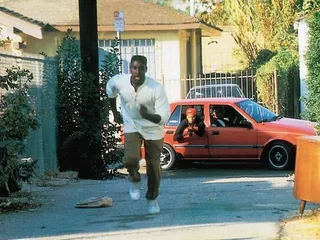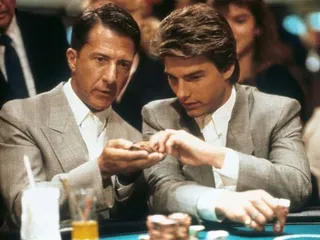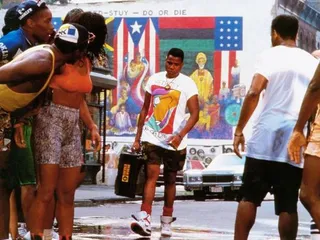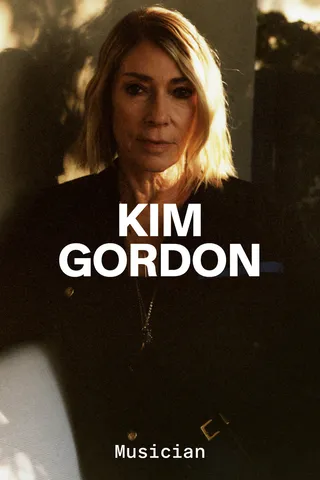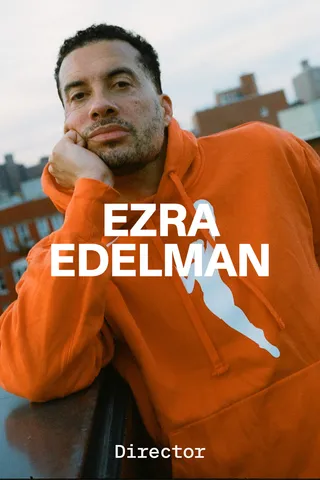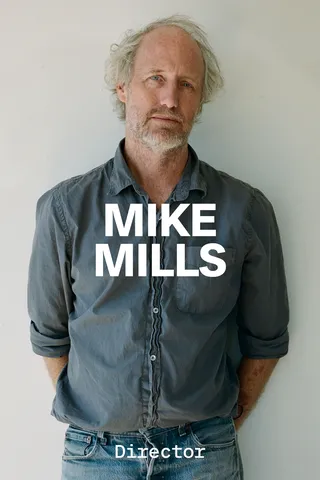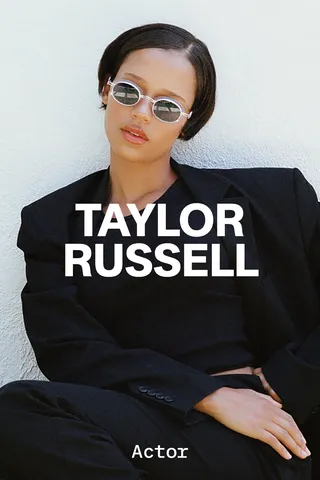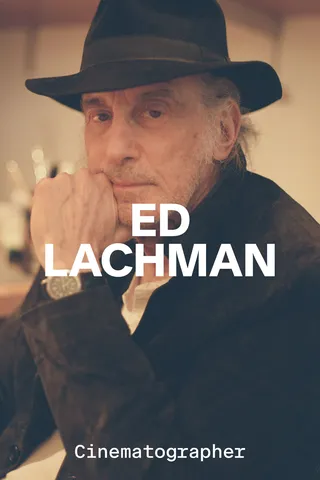Reinaldo Marcus Green
Long before launching his film career, Reinaldo Marcus Green was a serial high achiever. Born in the Bronx and raised in Staten Island, he narrowly missed a Major League Baseball career before becoming an elementary school teacher, then an educational director for a multinational Wall Street corporation. Since enrolling in an NYU filmmaking course at 27, Green has built a consistently excellent body of work, from his socially charged debut feature Monsters and Men (2018) to the uplifting sports biopic King Richard (2021), which earned an Oscar for Will Smith alongside a Best Picture nomination. Green’s latest starry bio-drama, Bob Marley: One Love (2024), confirms him as a heavyweight global player and empathic interpreter of legendary lives.
A PERSONAL MESSAGE
my FILM LIST
Click each title to discover our curator’s notes and where to watch
NYU had a list of 50 films they recommended you watch before entering film school, and this was the only one that I’d seen. I didn’t understand cinema, but I understood human emotion. I understood what made me feel, and those are the things that I still gravitate toward. Rashomon had that. This seemed to be where craft matched emotion. The structure was something I hadn’t seen before—the different ways of looking at similar subject matter. I started to love this because it was a puzzle.
{{ All Items }}Tokyo Story was one of the films that was listed on “50 films to watch” as I entered NYU’s Tisch Graduate Film School. It couldn’t have been further from my upbringing or the types of movies that I was accustomed to watching, but I had a deep emotional connection to it because of the universality of the film—and that’s love. It’s an incredibly intimate portrayal of a Japanese family who bring the little, subtle and important questions about life to the underlying theme of familial love.
{{ All Items }}This film speaks to the themes that I’ve explored in my films: this yearning to be some form of a revolutionary, to fight for the things that I believe in, to stand up for people that look like me. It’s a beautiful piece of filmmaking—heroic and huge. That spirit has manifested itself in my films and how the characters behave, as well as in the kinds of projects that I want to be a part of and the choices I make. That’s what great films do—they show you a different way of seeing the world.
{{ All Items }}This spoke to me as a young man. It’s a simple story, and sometimes making something simple is the most difficult thing. Cinematically, it’s a beautiful film: It’s well blocked, well designed. The shots are really obviously powerful. Even the movie poster is looking through a body part, seeing through the lens of your character. It’s not beating you over the head with a message, but there certainly is one. And Dustin Hoffman? He’s remarkable.
{{ All Items }}I like films about brothers. I have an older brother whom I love and admire, and he’s the reason I decided to become a filmmaker. Rain Man teaches how to try to forgive parents and acknowledges how difficult it can be to raise children. It’s a very touching story, and I hadn’t seen somebody like Dustin Hoffman’s Raymond onscreen at that time. It plays on our preconceptions about certain people and what they can and cannot do. Perhaps your whole life you’re seeking your parents’ approval. I find myself doing that even to this day.
{{ All Items }}My dad would always fall asleep to this movie on a loop. So every morning I’d wake up and there it was. The brilliance of this movie is imprinted onto a lot of my childhood memories, and it’s really stood the test of time. Sadly, it’s as relevant today as it was when it came out. Seeing this was part of the reason I decided to go to NYU and study under Spike, and it resonates in Monsters and Men. My film was a tribute to my mentor in a lot of ways, to my father in a lot of ways, and hopefully brings back some of the culture and conversations explored in Spike’s early work.
{{ All Items }}Goodfellas is arguably one of my most-watched films. No matter where I am or what I’m doing, if it’s on television, at any point in the film, I’ll watch it. I have a unique connection to the characters, having grown up in Staten Island, New York, with a lot of Italian-American families. I think it’s one of Scorsese’s best films. It captures the underbelly of the American Mafia family. Its brilliance is having you root for the bad guy and humanizing all of its characters without passing judgment. It’s fun and cinematic and checks all the right boxes.
{{ All Items }}I’ve seen this 60 times. I grew up an athlete in the hood, and I grew up in a single-parent household, so it spoke to me. These were issues that were facing my community at the time. We’d never seen a movie that visceral, that powerful. It’s such a well-told story and so well acted. This was very raw, personal—an intimate drama that showcases people who look like me in a way we just hadn’t seen. I knew a lot of kids like Ricky growing up, so even if we hadn’t lost someone, we felt like we had when we watched this movie.
{{ All Items }}When I think of Malcolm X, I think of Denzel Washington. Denzel really cemented this idea that Malcolm had come back from the dead. You hear stories that Spike Lee, making the film, ran out of money, so he called Black Hollywood—and Oprah and Michael Jordan—for some favors to get some financing to finish the film the way that he wanted. Wynn Thomas did the production design, and I brought him on to do King Richard—it looked so real. To date, how many historical Black biopics had we gotten on that level? I can’t name them.
{{ All Items }}Style, revolutionary spirit and young kids fighting for their space in the world. One of my favorite shots in all of film is the mirror scene with Vincent Cassel. It’s a sort of visual trick, and I couldn’t figure out how they did it at first. I tried to emulate that very shot in Monsters and Men. It didn’t quite have the same elegance of trickery, but it was as simple as it needed to be. That was the only time we broke the fourth wall on my film, thanks to La haine.
{{ All Items }}This is my favorite ending in a film. It’s a classic. Whenever that scene arrives, it’s like waterworks. Robin Williams and Matt Damon were incredible in the film, and Ben Affleck was so young and so pure at that time. Gus Van Sant did such a beautiful job with the film. Look, I’m no boy genius from Southie, but I think Will’s character speaks to the common man in a lot of ways. A man discovering himself and who he wants to be and rejecting the status quo. It’s a beautiful piece of cinema.
{{ All Items }}I’ve never taken a drug in my life, but it must be like this—this crazy trip, just high-octane, the front seat of a roller coaster. Few films have ever made me feel I’m complicit in the action the way that this does. The acting and filmmaking are fantastic, but I love the nonlinear storytelling. I’m still on edge just talking about this film because it’s so palpable, so raw, so visceral. I remember buying the script for Amores Perros to learn how to write these intersecting stories. When do they meet? How do they do it? But it also helped me to pull back on anything too forced or false. Amores Perros is always real.
{{ All Items }}I saw this in film school and I was getting to know who Michael Fassbender was as an actor—I was captivated by him and believed everything he was doing. Again, there’s revolutionary spirit: Someone is starving themselves to prove a political point, to try to get some form of justice. Steve McQueen has made an amazing piece of cinema: the framing, the wide shots, the darkness, the colors. The film starts with a guy, you don’t know who he is, you just see bruised knuckles under running water. McQueen is showing, not telling—he’s an artist designing each shot purposefully. Nothing is extraneous. There is such power in films to make us stop and pay attention.
{{ All Items }}The rawness and magnetism and the characters drew me in. Technically, everything from the colors to the handheld cinematography feels like cinema at its highest, highest level. And again, I was thrust into a world that I knew very little about. I didn’t grow up watching French films or Italian Neorealism or Korean cinema. There just weren’t ways to find out about these movies. I think this is very special. There’s nothing else like it.
{{ All Items }}Senna is one of the most immersive documentaries I’ve ever seen, about the life of a competitive athlete and what that means. The filmmaking and access that the filmmakers got was incredible. I felt like I was driving in the front seat of a Formula 1 car with one of the greatest drivers on Earth. It’s a remarkable and sad story, but one that is truly moving and captures the heart of competitive sports and how far people can go to achieve their dreams.
{{ All Items }}
MY CREATIVE PROCESS
Exploring craft and influence
Galerie Originals
Reinaldo Marcus Green On Location WATCH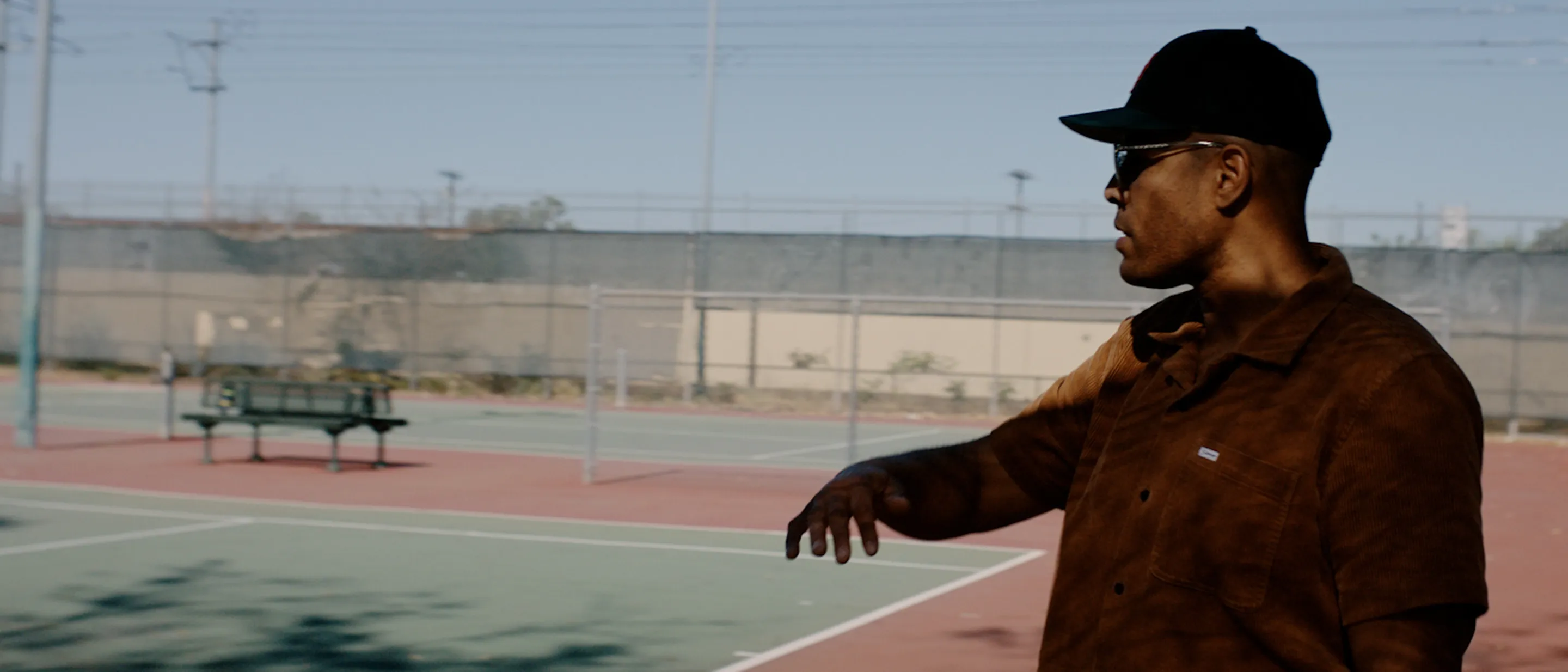
“There is such power in films to make us stop and pay attention.”
Related Material
Essays, Interviews and Other Connections
![Street Level]() Street LevelRead
Street LevelReadIn Boyz n the Hood, John Singleton’s groundbreaking perspective on inner-city Los Angeles illuminates invisible power structures
By Matthew Specktor
![Radical Honesty]() Radical HonestyRead
Radical HonestyReadRain Man’s inspired performances and candid approach to neurodiversity challenge morality-tale convention
By Andrew Lipstein
![Speaking Volumes]() Speaking VolumesRead
Speaking VolumesReadIn Spike Lee’s masterpiece Do the Right Thing, cultural prophecies resound from the sidewalk
By Ivy Pochoda
